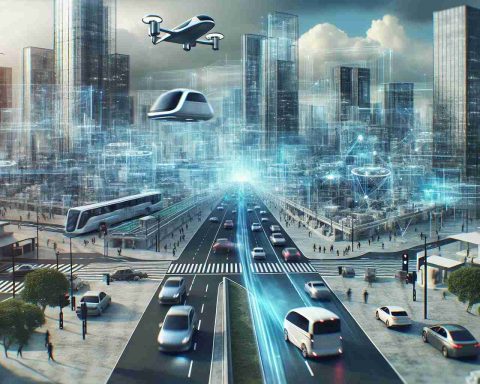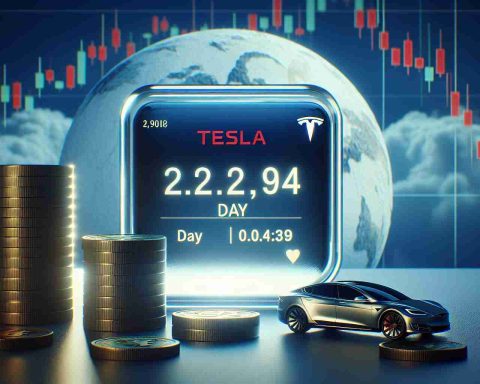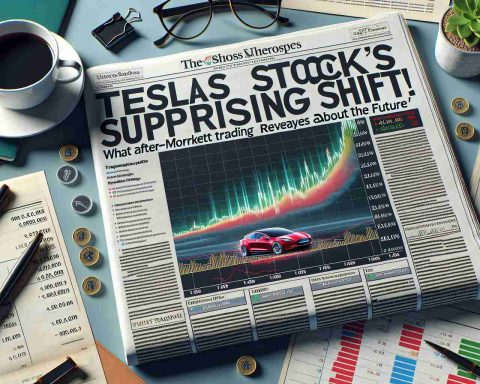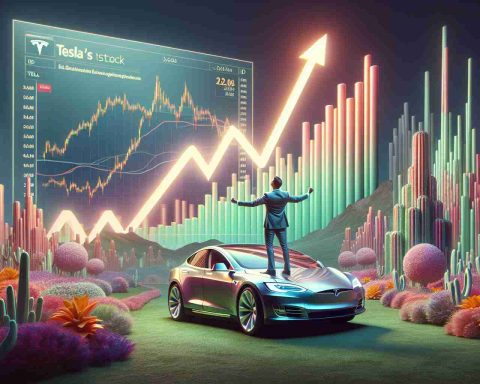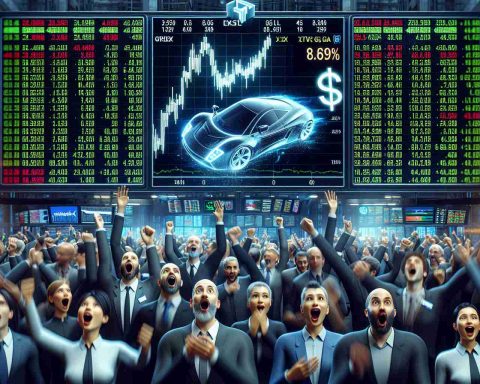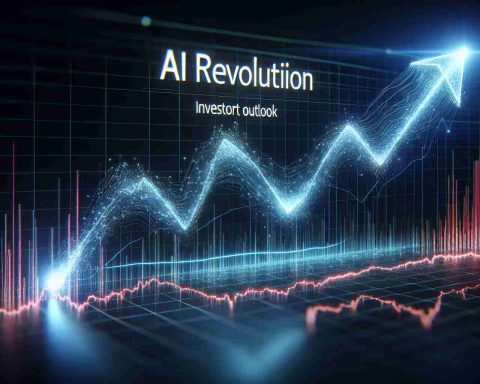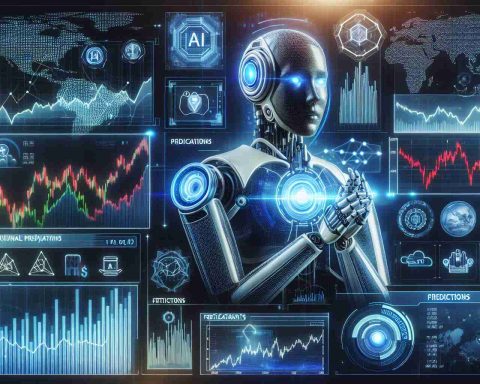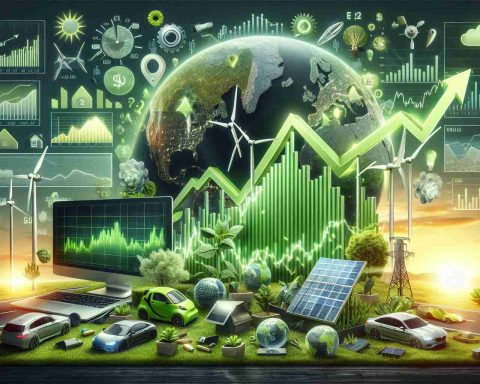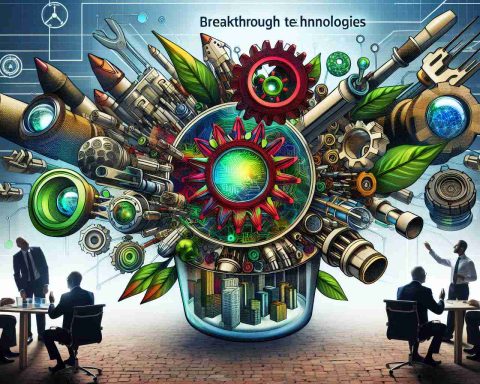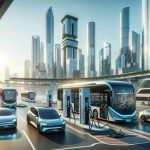Shifting Tides for Automakers
In a surprising turn of events, traditional automakers in Detroit witnessed a surge in their stock prices on Tuesday, while their electric vehicle (EV) counterparts faced declines. This shift comes amid President Donald Trump’s vocal criticism of former President Joe Biden’s pro-EV initiatives, promising to dismantle many policies linked to electric vehicles.
In his inaugural speech, Trump vowed to abolish what he termed the “Green New Deal” and eliminate the electric vehicle mandate. His commitment extends to preserving American jobs by allowing consumers more freedom in car purchases. On Monday, he followed up with an executive order aimed at revoking state emissions regulations and halting funding associated with Biden’s green initiatives, which had allocated substantial resources for EV projects.
Amid this backdrop, electric truck manufacturer Rivian saw its stock drop by over 6%, while luxury EV maker Lucid’s shares fell by more than 4%. Despite camaraderie between Elon Musk and Trump, Tesla’s stock also dipped nearly 3%, casting doubt on the future of EV subsidies, such as the notable $7,500 tax credit.
In contrast, shares for General Motors soared by almost 5%, buoyed by a favorable analysts’ review. Ford and Stellantis stocks rose slightly as well, indicating that established automakers might continue to thrive, even as the EV landscape becomes murky under the new administration.
Implications of the Shift in the Automotive Landscape
The recent fluctuations in the stock prices of traditional automakers versus electric vehicle (EV) manufacturers underscore a significant tension in the automotive industry that could reverberate through the economy and society at large. The pivot away from electric vehicles might bolster internal combustion engine (ICE) vehicle production, reinforcing the legacy of fossil fuel dependency in the United States. This move could inadvertently delay the transition toward a sustainable, low-carbon future, causing backlash from environmental advocates.
The potential environmental impacts of this shift are profound. By rolling back emissions regulations and dismantling subsidies for EVs, the current administration risks exacerbating pollution levels, which can affect air quality and public health. According to the EPA, transportation accounts for nearly 29% of U.S. greenhouse gas emissions, a figure that could worsen as such policies take effect. Furthermore, cities struggling with the consequences of climate change may find it increasingly difficult to meet ambitious climate goals envisioned for the coming decades.
In the broader context of the global economy, the move may shift the competitive advantage away from clean technology, creating opportunities for countries like China, where investments in EVs are aggressively pursued. As these trends unfold, the future of the automotive market may morph into a battleground between traditional manufacturing resilience and the urgent necessity for sustainable development.
In summary, the implications of this evolving narrative could have long-lasting effects, influencing consumer behaviors, regulatory environments, and ecological outcomes for years to come. As the debate intensifies, the need for balanced policy-making that addresses both economic viability and environmental stewardship has never been more critical.
The Electric Revolution Faces New Challenges: What the Future Holds for Automakers
Overview of the Shifting Landscape for Automotive Companies
Recent events have initiated a significant shift in the automotive industry, particularly affecting traditional automakers in Detroit and their electric vehicle (EV) counterparts. The stock market has shown a stark contrast between these entities, with traditional automotive companies experiencing a rise in stock prices while EV manufacturers have faced declines. This situation arose following President Donald Trump’s critique of former President Joe Biden’s pro-EV policies, which aimed to bolster electric vehicle production and adoption across the United States.
Key Developments Impacting the Automaker Industry
1. Policy Changes on the Horizon: Trump’s administration has signaled a potential rollback of Biden’s green initiatives, which included substantial funding for EV projects and stringent emissions regulations. The proposed executive orders reflect a broader shift in energy policy that could significantly alter the market dynamics for electric vehicles.
2. Stock Market Reactions: Following Trump’s announcement, stocks of established automakers such as General Motors rose significantly, while EV companies like Rivian and Lucid saw declines. The differing performance highlights investor sentiment regarding the sustainability of the EV market amid changing political landscapes.
FAQs About the Current Situation in the Automotive Sector
Q: Why are traditional automakers’ stocks rising?
A: Traditional automakers are benefitting from a perceived relaxation of regulations and the potential for increased consumer freedom in vehicle purchases, leading investors to feel optimistic about their future performance.
Q: What specific policies is Trump targeting regarding EVs?
A: Trump has pledged to dismantle the “Green New Deal,” eliminate federal EV mandates, and stop state-level emissions regulations associated with EV policies.
Q: How does this affect EV subsidies like the tax credit?
A: There is growing uncertainty surrounding federal EV subsidies, such as the $7,500 tax credit, which may be at risk under the new administration.
Pros and Cons of Current Trends in the Automotive Industry
# Pros:
– Stability for Traditional Automakers: Increased stock prices indicate potential stability and investor confidence.
– Consumer Freedom: Possible deregulation may give consumers more choices in vehicle types, potentially favoring combustion engine vehicles.
# Cons:
– Uncertainty for EV Manufacturers: The potential removal of subsidies could hinder the growth of the EV market.
– Environmental Concerns: A shift away from EV support may impact the overall goal of reducing carbon emissions.
Trends and Predictions in the Automotive Market
The automotive landscape is poised for transformation as political winds shift. Experts predict that:
– Increasing Investment in Combustion Vehicles: Traditional automakers may ramp up investment in combustion engine vehicles if EV policies wane, impacting long-term sustainability goals.
– Opportunities for Innovation: As market pressures change, automakers may pivot to innovate around traditional vehicle technologies rather than focusing solely on EV advancements.
– Market Diversification: Automakers might explore diversified market strategies to cater to both traditional and electric consumers.
Conclusion
The shifting tides in the automotive sector underline the profound impact of political decisions on industry dynamics. As traditional automakers gain momentum and EV manufacturers face challenges, the future of the automotive market remains uncertain. Stakeholders must stay attuned to these developments as they navigate the complexities of a rapidly evolving landscape.
For more insights on the automotive industry, visit Automotive.com.





